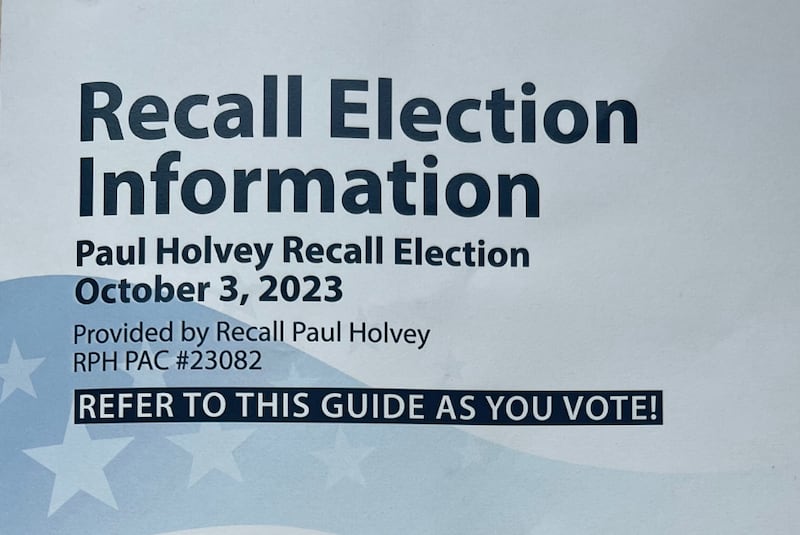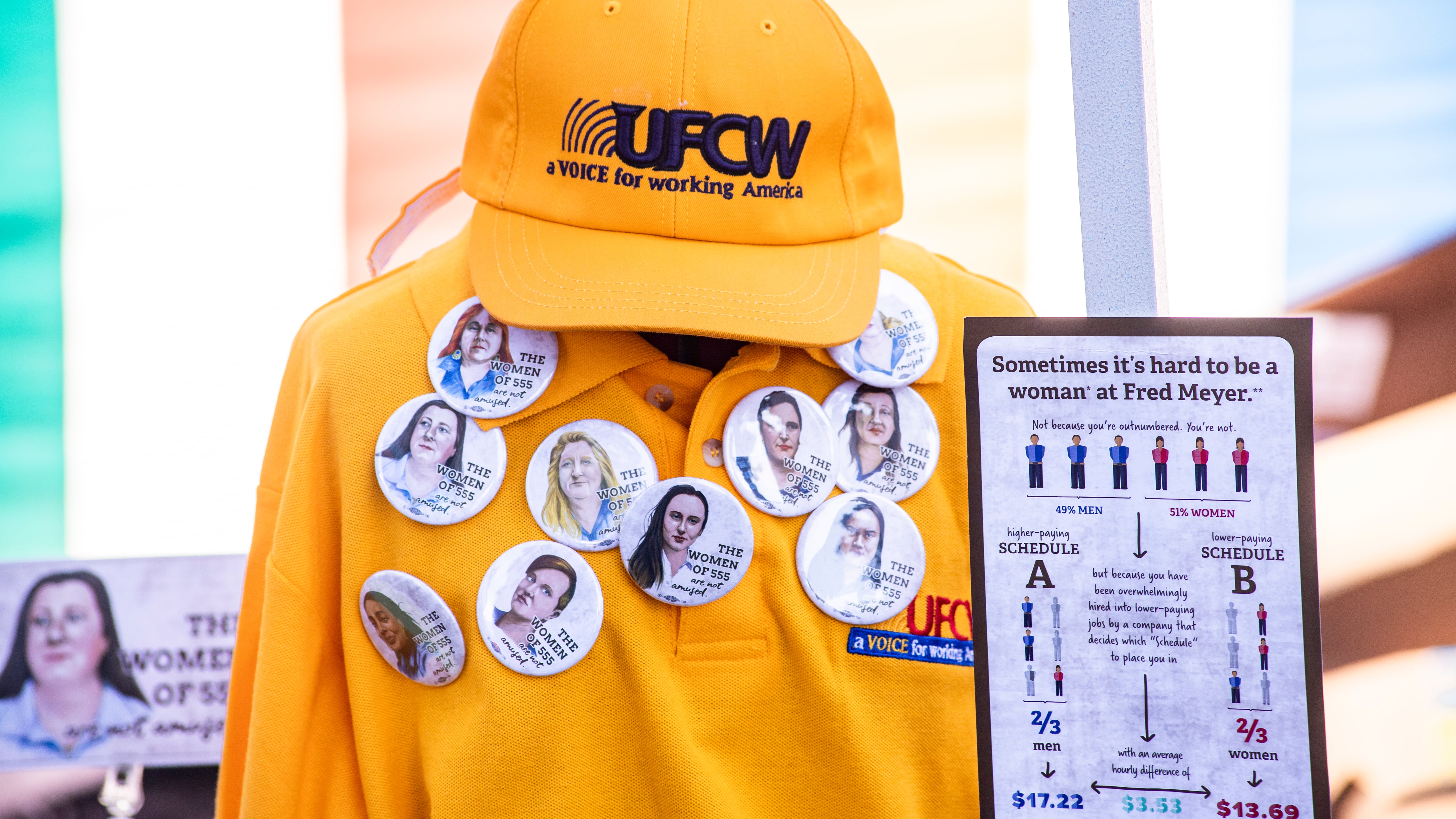A supporter of Rep. Paul Holvey (D-Eugene), the state legislator facing a recall election initiated by the United Food & Commercial Workers union, asked the Oregon Secretary of State’s Office this week to investigate an anti-Holvey mailer that she says has the look and feel of an official elections guide.
Emily Pfeiffer, operations director at FuturePAC, the campaign arm of Democrats in the state House of Representatives, filed the request with the Elections Division of the secretary’s office on Sept. 18.
“ORS 260.695 does not allow groups or candidates to send out campaign literature that imitates a voters pamphlet unless it states ‘THIS IS NOT THE OFFICIAL VOTERS’ PAMPHLET’ and ‘UNOFFICIAL’ on each page,” Pfeiffer wrote in her investigation request. “The RPH PAC sent out literature that imitates a voters pamphlet but does not meet these requirements. Images are attached.”
The RPH PAC is the group seeking to recall Rep. Holvey. The effort is backed by United Food & Commercial Workers Local 555. The union was once a staunch ally of Holvey, a 35-year member of the United Brotherhood of Carpenters and a strong supporter of workers’ rights since entering the House in 2004, but the union has soured on him in recent years, leading to a rare intra-labor fight.
The UFCW gathered enough signatures to hold a recall election Oct. 3.
“REFER TO THIS GUIDE AS YOU VOTE!” the disputed mailer says.
The request for an investigation is the latest effort by Holvey and his allies to stave off a recall. In June, Holvey filed a state ethics complaint alleging that UFCW lobbyist Mike Selvaggio violated Oregon law by threatening to oust Holvey over his opposition to a UFCW-backed bill.
“I’m writing to file a complaint against Oregon registered lobbyist Michael Selvaggio for attempting to influence my vote as a legislator by threatening to finance, and actually financing, my opposition in an upcoming election,” Holvey wrote in his June 13 complaint.
The bill in question, House Bill 3183, died in the last legislative session. It sought to unionize the cannabis industry through a detente between companies and workers that would make it easier to join a union.
The bill would have required companies seeking to process or sell cannabis to enter into a “labor peace agreement” in which the company stays neutral during an organizing campaign, and the union agrees to eschew picketing, work stoppages, boycotts and other tactics.
Holvey, 69, says he opposed the bill because it contravened workers’ federal rights to strike and picket. He asked the state’s Legislative Counsel Committee for an opinion on the matter, and it said HB 3183 likely violated the National Labor Relations Act, passed by Congress in 1935.
Selvaggio, the lobbyist for UFCW Local 555, says Holvey’s opposition to the bill was the latest in a long line of actions that have taken him away from his pro-union roots. Selvaggio dismissed both the request for an investigation into the mailer and the ethics complaint as sideshows meant to divert attention from Holvey’s record.
“This is just an attempt to muddy the waters,” Selvaggio said in an interview. About the mailer, specifically, he said: “I think they’re really reaching since there are no graphical or textual or thematic elements in common with a voter’s pamphlet. The only thing in common is that it’s rectangular and it’s not even the same size. It doesn’t have the word ‘voter’s’ or ‘pamphlet’ on the front. Their complaints are designed to waste our time.”

Holvey, chair of House Business and Labor Committee, says he is as loyal to labor as he ever was and that he’s flummoxed by the UFCW’s actions. Other unions support him against the recall, including the American Federation of State, County and Municipal Employees and Service Employees International Union.
“I’ve run into some kind of misinformation machine,” Holvey said in an interview. The idea that he blocked unionization by opposing the cannabis bill is absurd, he said. “Doing it over again, I would come down on the same position.”
The fight has cost Selvaggio. He is no longer a member of the Oregon Capitol Club, a lobbyist trade organization that has a room in the basement of the Capitol Building that members can use. The club has rules that are similar to those of the Oregon Government Ethics Commission, and rather than force an investigation, Selvaggio says he suspended his membership until after the election.
“It put the Capitol Club in an awkward position,” Selvaggio says. “I’m pretty confident that the ethics commission will investigate this and say there is nothing there.”
Hans Bernard, president of the Capitol Club, didn’t return calls seeking comment.

